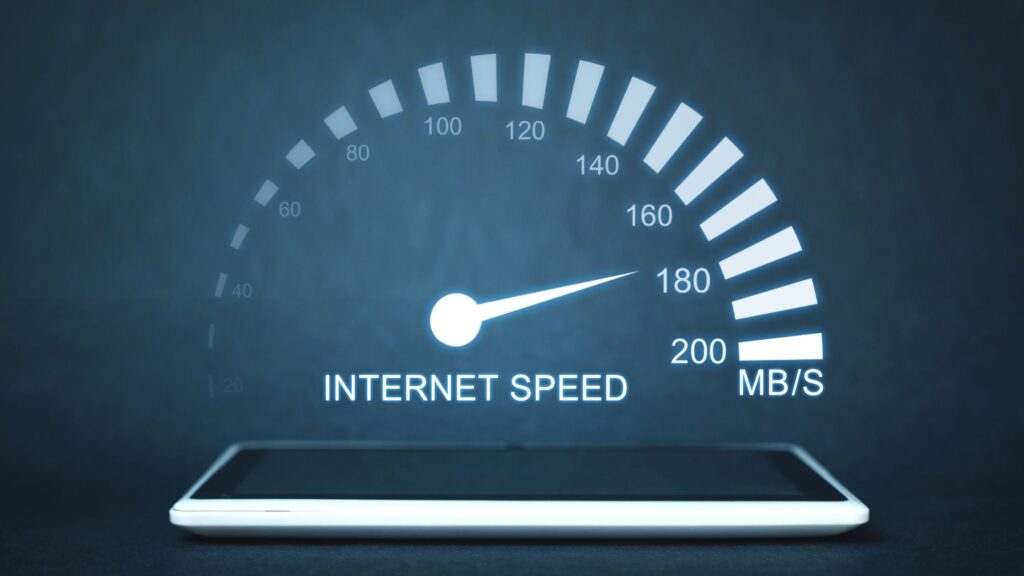
In our modern digital world, slow internet speeds can be a major frustration for many. However, recent groundbreaking research conducted by scientists at Aston University in the UK promises to change that, setting a new world record for internet speed and offering hope for a faster, more connected future. This achievement has made the internet 4.5 million times faster, marking a significant milestone in enhancing digital connectivity.
Table of Contents
ToggleInternet 4.5 Million Times Faster: The Need for Speed
Slow internet connections have long been a pain point for internet users worldwide. Whether it’s waiting for videos to buffer or enduring sluggish download speeds, the limitations of current broadband technology have been keenly felt by individuals and businesses alike.
A Quantum Leap in Internet Speeds
Enter the researchers at Aston University, who have achieved an astonishing feat: transmitting data at a rate 4.5 million times faster than average broadband speeds. This incredible achievement was made possible by harnessing new wavelength bands in optical fiber, paving the way for unprecedented data transfer rates.
Unlocking New Wavelength Bands
Traditionally, internet data has been transmitted using a limited number of wavelength bands in optical fiber. However, the Aston University team identified untapped potential in two additional bands known as the E-band and S-band. By utilizing these previously unused bands, they were able to significantly enhance data transmission speeds.
The Role of Optical Amplification
Central to this breakthrough is the development of an innovative optical amplifier that enables data to flow seamlessly through the newly discovered wavelength bands. This crucial component ensures that data can be transmitted at ultra-high speeds without the need for costly infrastructure upgrades.
Implications for the Future
The implications of this breakthrough are far-reaching. Beyond simply improving internet speeds for consumers, faster data transmission could revolutionize industries ranging from healthcare to finance. Businesses stand to benefit from increased efficiency and productivity, while individuals in underserved areas could gain access to essential online services.
A Brighter, More Connected Future
As we look to the future, the possibilities presented by this groundbreaking research are truly exciting. With faster internet speeds becoming a reality, we can envision a world where digital communication is faster, more reliable, and more accessible than ever before. Thanks to the ingenuity of these researchers, the dream of a truly connected world is within reach.
Conclusion
In conclusion, the achievement of Aston University researchers in accelerating internet speeds represents a significant milestone in the evolution of digital communication. By pushing the boundaries of what is possible, they have demonstrated the transformative power of scientific innovation. As we embrace this new era of connectivity, we can look forward to a future where the internet is faster, more efficient, and more inclusive for all.
FAQs
The fastest internet speed achieved so far is 301,000,000 megabits per second (Mbps), achieved by researchers at Aston University in the UK.
The record-breaking speed is approximately 4.5 million times faster than average broadband speeds, which typically range from 50 to 100 Mbps.
Researchers utilized new wavelength bands in optical fiber, specifically the E-band and S-band, which allowed for significantly faster data transmission rates.
While the technology is still in the research stage, it offers promising potential for future internet infrastructure upgrades that could benefit consumers worldwide.
No, one of the remarkable aspects of this breakthrough is that it doesn’t require new infrastructure. Instead, it can be implemented through upgrades to existing optical fiber networks.
Faster internet speeds could lead to quicker downloads, smoother streaming, and improved overall internet performance, enhancing productivity and convenience for users.
While the research was conducted in the UK, advancements in internet technology tend to have global implications, meaning that faster internet speeds could eventually be available worldwide.
It’s difficult to predict future pricing models, but advancements in technology often lead to increased efficiency and lower costs over time, which could benefit consumers.
Faster internet speeds could revolutionize various industries, including healthcare, finance, education, and entertainment, by enabling quicker data transfers and more robust connectivity.
While it’s challenging to provide a precise timeline, continued research and development in this area could lead to commercial implementations of faster internet speeds within the next decade.




